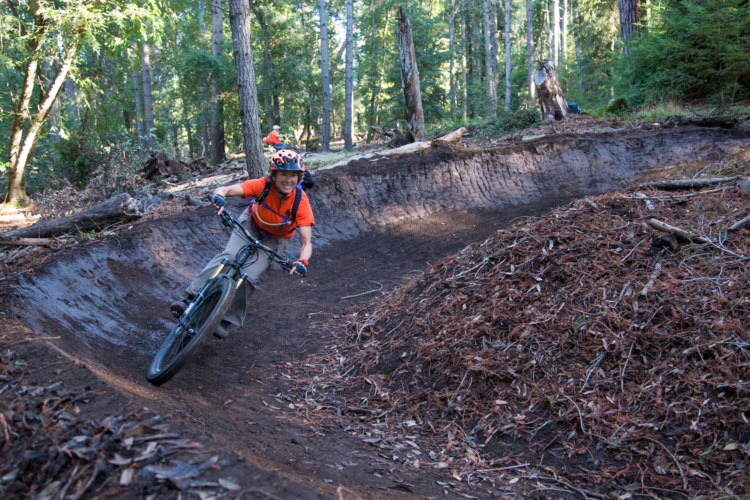Although derailleurs can look intimidating, they’re actually pretty easy to adjust. We learned this in another video. The thing is, adjusting your cable tension, limits, and B screw doesn’t always do the trick.
Old cables, improper routing, worn parts, and a whole host of other things can make your bike shift like total garbage.
It’s no surprise that I had shifting problems after that crash. On the ride home, I needed to mess with the barrel adjuster just to keep it from ghost shifting everywhere. You can keep dicking with your derailleur to no avail, or you could get down to the root of the problem: the part it’s mounted to.
So first of all, why does this happen so often? Well hangers are strategic failure points. They are designed to be weaker than your frame or derailleur so that they will fail. When your rear mech gets impacted, the hanger bends or snaps. This is better than the derailleur itself breaking, but even more importantly, it protects your frame.
When an impact isn’t big enough to snap your hanger, it gets tweaked. You can stare at it all you want, but you’ll rarely be able to see which way it’s bent. Usually it’s tweaked in all sorts of directions, but we could just replace it right? Good luck with that early on a Sunday morning. Derailleur hangers are specific to your bike frame, so while shops will usually have a whole bin of them, it’s often times a special order item. Lucky for me, Alexander had a specialty tool that would save the day.
This tool isn’t just for bike shops. Anyone who does a fair amount of mountain biking can benefit big time from a derailleur hanger alignment tool. The concept is simple; the tool threads into your hanger, and allows you to compare it to your rear wheel. Even if your rear wheel is bent, you can gauge it against a reference point like the valve stem as you move around the wheel’s radius.
The trick is to make the gauge skim along the edge of your wheel at the same distance in all places. It’s easy to see where you need to tweak it out, or in.
Now I actually keep replacement hangers around, since they’re bound to snap, but in this case I was unprepared. Hangers are also more expensive than you would think, making the cost of a gauge pretty palatable. This Park Tool model is what a professional bike mechanic would use, and it’s under $70. A cheap one barely costs more than a new hanger does. So even if you buy a top of the line model it could save you money, but more importantly it can get you back on the trail right away.
Now I’ve bent back derailleur hangers by hand before, with varying levels of success. When Alex did it with the gauge, it was flawless, just like a new hanger.
So if you’re scratching your head trying to figure out why your bike shifts like garbage, more likely than not your hanger is out of alignment. You could order a new one, go to a shop, or try your luck with the adjustable wrench trick. While those options sound great, I’m leaning towards buying that tool to avoid getting stuck again.
Thanks for riding with me today, and I’ll see you next time.





















0 Comments